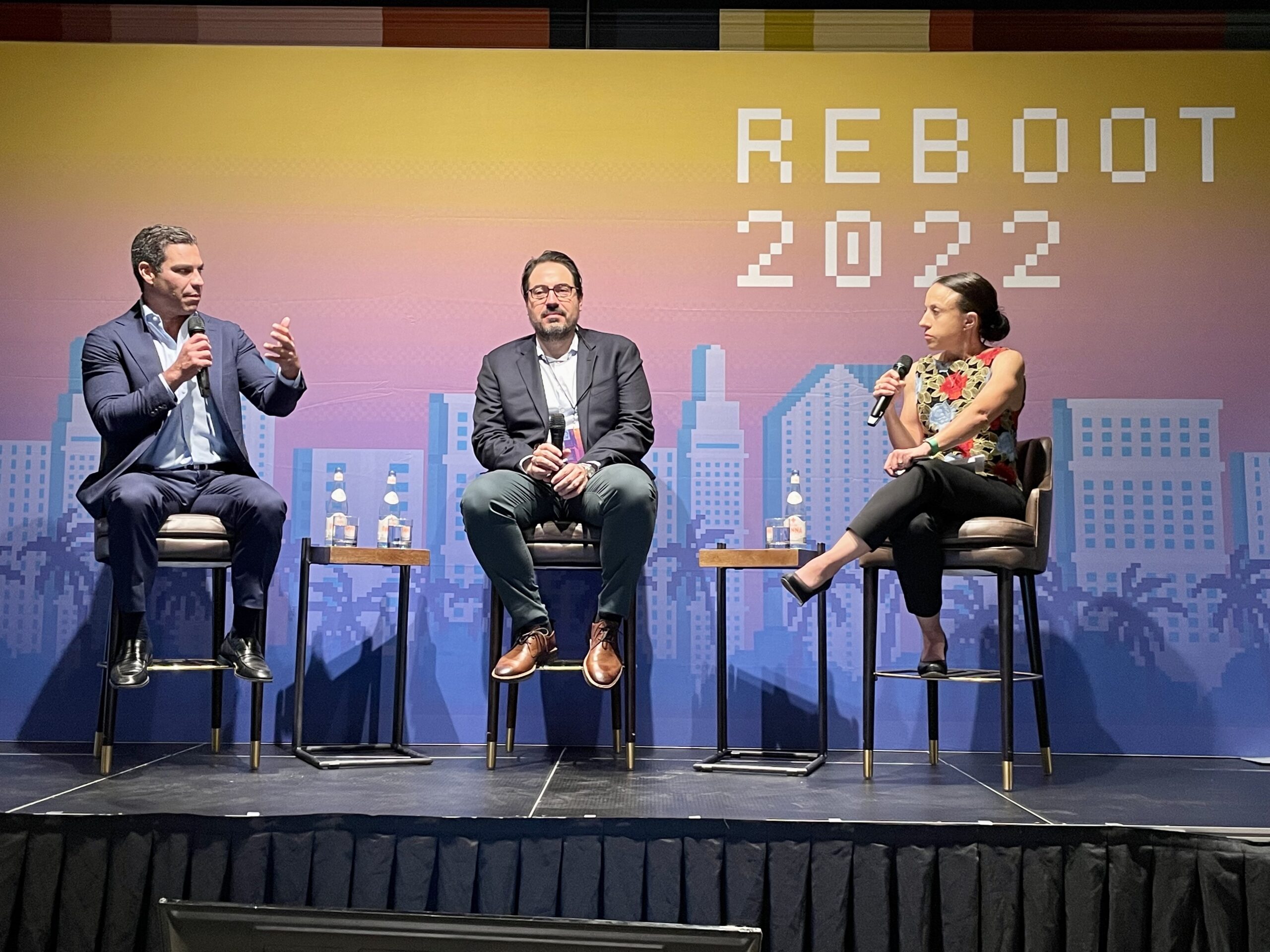By Riley Kaminer
The Lincoln Network, a technology-focused policy think tank, brought market-oriented policy experts, entrepreneurs, and investors together at Ampersand Studios in Downtown Miami on Thursday through their Reboot 2022 conference.
The goal: investigate the intersection of technology and public policy – and the corresponding effects that technology will have on our lives.
During this day of big ideas and big questions, Miami was in the foreground. And who better to tackle these big questions than the ‘ideas man in chief’: the City of Miami’s Mayor Suarez.
In conversation with Miami native Antonio García Martínez, technologist and author of Chaos Monkeys, moderated by Katie Biber, Chief Legal Officer of crypto VC Paradigm, Suarez discussed the excitement surrounding web3.
“In my lifetime, Miami will become the largest aggregator of capital and the largest employer of capital in the US, and possibly even the world,” proclaimed Suarez, explaining that the rise of web3 will enable this growth. He also highlighted the geographic and tax advantages fueling Miami’s tech growth.
Suarez’s take on how long it will take for 90% of Americans to own crypto? Five years. García Martínez took a slightly more conservative bet: “In 10 years or never.”
But both Suarez and García Martínez agreed on the future of Miami as a prominent tech hub.
“In Miami, people are willing to accept a new order of things and reject the past,” said García Martínez. “There’s a certain hustle culture here.”
García Martínez continued: “Miami is a city of people who are fleeing a failed state of affairs and other places. And of course, I’m talking about California… and Cuba.”
The Florida bullishness continued in a conversation comparing the conditions for entrepreneurship here and in California.

Mike Solana, a vice president at the Founders Fund, challenged the idea that South Florida’s still fledgling talent pipeline will hinder our region’s growth as a tech hub: “Boston has talent and a strong venture community, but it still can’t compete with Silicon Valley.”
“You definitely do need the schools,” said Solana. “But it’s not the main thing. What you really need is a huge tech company here.”
Daniel Perez, a Miami-based member of the Florida Legislature, underscored the importance of ensuring that housing remains affordable.
“We want to attract talent here, and we don’t want to lose our talent, which is some of the best in the whole world,” he said. “To do that, we need to make sure that they can afford to live here.” Perez highlighted recently-passed legislation to ensure that the state’s trust fund for building affordable housing continues to grow.
David Sacks, co-founder and partner of Craft Ventures, also made a (virtual) appearance [pictured below] at the event to continue a conversation he had with García Martínez during the All-In Summit last May. The two debated the relative merits of US intervention in Ukraine. “I’ve always supported us trying to find a diplomatic solution to this war,” asserted Sacks.

Garrett Johnson [pictured below], co-founder and COO of Miami-based startup Hydra Host and founder of the Lincoln Network, emceed the event. In his introductory remarks, he called Miami “the most vibrant city in the country.” Johnson recently returned to Florida after spending a decade in the Bay Area.

READ MORE ON REFRESH MIAMI:
- Hydra Host closes $10M seed round led by Founders Fund to scale resilient, secure cross-cloud infrastructure
- Blast off! Extraterrestrial entrepreneurship on display at Levan Center’s South Florida Space Day
- Latin American and Caribbean founders will connect with Miami’s ecosystem at upcoming TechBeach Retreat
- Meet the FAU professor whose bootcamp programs aim to help make our region an entrepreneurial hub
- What does the future of the #MiamiTech movement look like? The Knight Foundation’s Raul Moas weighs in





